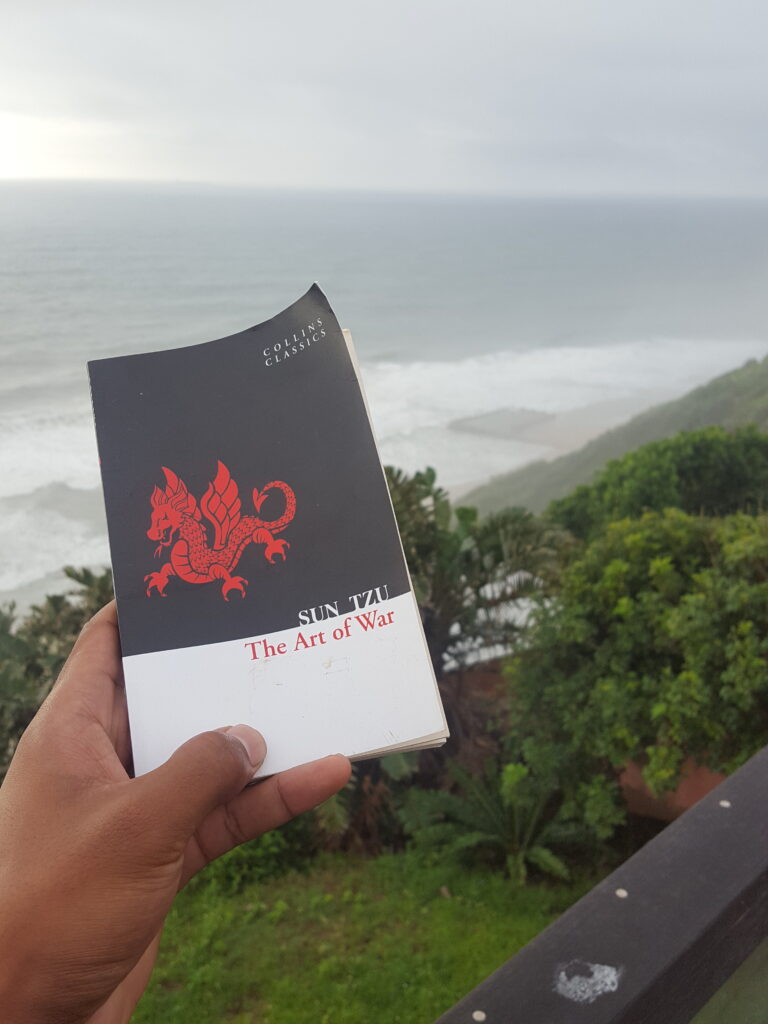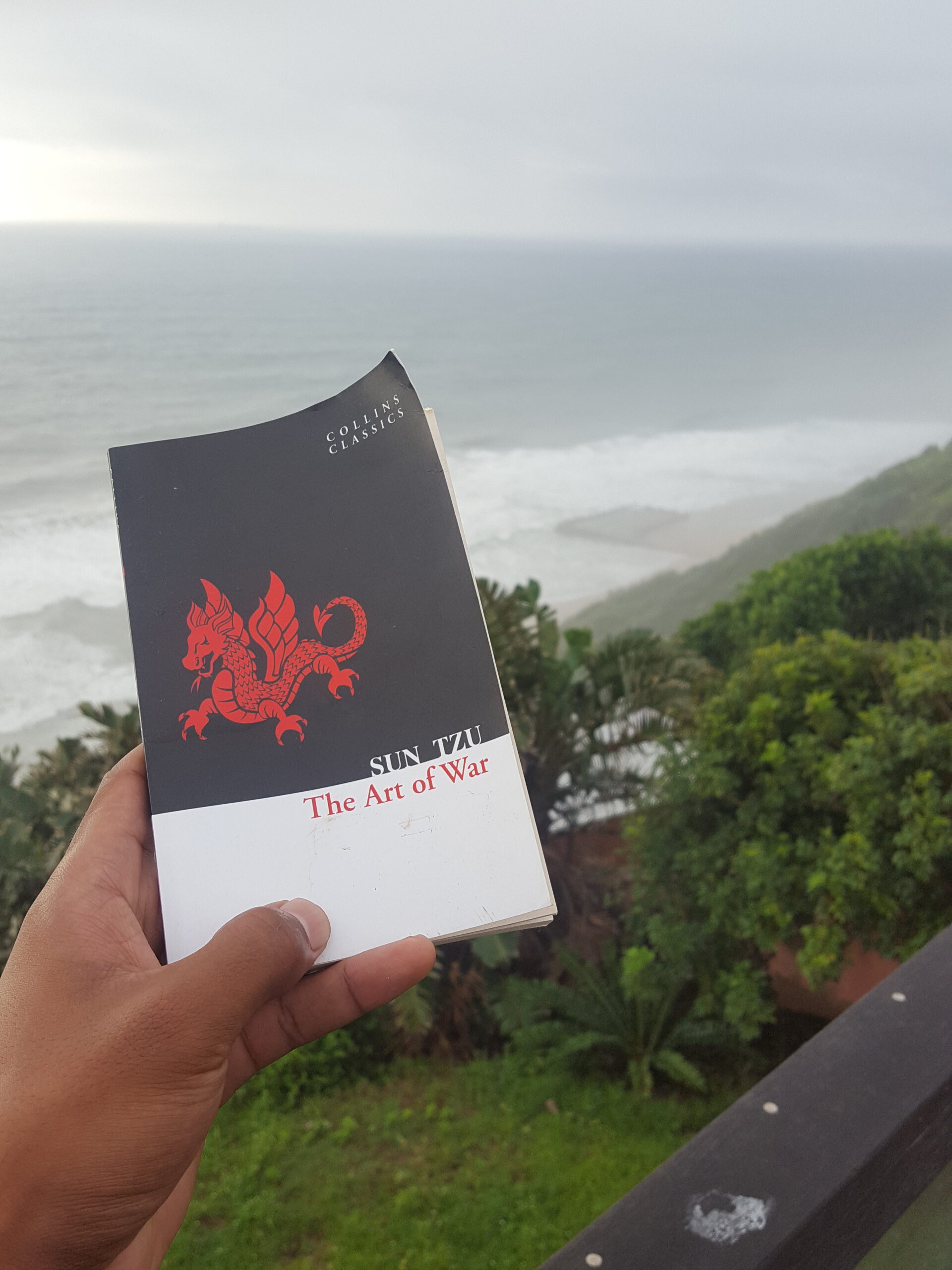
The Art of War: A Personal Reflection on Strategy, Survival, and the Nature of Competition
When I first picked up “The Art of War” by Sun Tzu, I knew it would be a quick read, but I wasn’t prepared for the profound impact it would have on my understanding of life, strategy, and human nature. It’s a book rooted in ancient military strategy, yet its lessons extend far beyond the battlefield, touching on the very core of how we navigate competition and conflict in our everyday lives.
A Brief Historical Context
“The Art of War” is a military treatise written in the 5th century BC, during the tumultuous Spring and Autumn period in China. This was a time when the land was divided among numerous states, all vying for power and survival. Sun Tzu, a military general, philosopher, and strategist, distilled his experiences into this concise yet powerful manual, intended to guide rulers and generals in warfare. But what’s remarkable about the book is its relevance to anyone who faces conflict—be it in business, relationships, or personal challenges.
The Military Method and the Deeper Meaning of Competition
Sun Tzu’s military method is not just about physical combat; it’s a philosophy of life. His teachings emphasize the importance of strategy, the art of deception, and the value of understanding both oneself and the enemy.
One of the most striking principles he shares is:
“All warfare is based on deception.”
This idea resonated deeply with me. In life, as in war, things are rarely as they seem. We are constantly navigating a world where appearances can be deceiving, where people may present themselves one way but harbor very different intentions. Sun Tzu’s advice to “appear weak when you are strong, and strong when you are weak” is a reminder to always be aware of how we present ourselves and how others may perceive us.
Survival and the Reality of Conflict
For me, “The Art of War” opened my eyes to the broader implications of competition and survival. It’s easy to think of conflict as something that only happens in extreme situations, but the truth is, we are all engaged in a daily struggle for resources, for recognition, for success. Sun Tzu’s insights are not just about winning battles; they’re about understanding the nature of conflict and preparing yourself to survive and thrive in a competitive world.
One of the most profound lessons from the book is:
“The supreme art of war is to subdue the enemy without fighting.”
This speaks to the power of strategy over brute force, the importance of out-thinking your opponent rather than simply overpowering them. In my own life, I’ve encountered situations where conflict was inevitable, and while I won’t go into the details, these experiences have reinforced the need to think strategically, to anticipate the moves of others, and to protect myself from harm.
Winning without fighting
The book is divided into 13 chapters, each dealing with a different aspect of warfare, from planning and tactics to the use of terrain and the importance of adaptability. It emphasizes winning without fighting whenever possible, highlighting that the best victories are those achieved through strategy rather than brute force.
The Importance of Intelligence and the Role of Spies
Another key lesson from Sun Tzu is the importance of gathering intelligence:
“On the use of spies”
This chapter shares everything you need about knowing what your opponent is doing, thinking, or planning and how its invaluable in any competitive situation. Whether in business or personal relationships, having the right information can make the difference between success and failure. This principle has become instinctual for me over time; I’ve learned to be more observant, to listen carefully, and to always be prepared for the unexpected.
The Human Condition: Competition and Conflict
David Buss, an evolutionary psychologist, talks about “Hostile Conspecifics”—members of the same species that attack you. This is an essential part of the human experience. We may live in a society that appears peaceful and cooperative on the surface, but underneath, the reality is often much harsher. People you trust can turn against you, allies can switch sides, and those close to you may betray you. It’s in these moments that the teachings of “The Art of War” become most relevant. You must be prepared to defend yourself, to navigate the complexities of human relationships, and to emerge stronger.
Growing up poor, I’ve always been acutely aware of the need to fight for what I want. I refuse to accept the circumstances of my birth as my destiny. Books like “The Art of War” have given me the tools to shape my future, to strategize, and to take control of my life. They remind me that while I may never go to war in the traditional sense, I am constantly engaged in battles—battles for opportunities, for respect, for success.
The Name of the Book
The Sun Tzu Bing Fa (孙子兵法), often translated as The Art of War, is Sun Tzu’s most famous work . “Bing Fa” literally means “military method” or “military strategy,” and the text itself is a comprehensive treatise on how to conduct warfare successfully. In terms of Chinese history (around the 5th century BC), these times marked by intense warfare among rival states. Sun Tzu’s real name is thought to be Sun Wu, and “Tzu” is an honorific meaning “master,” so “Sun Tzu” roughly translates to “Master Sun.”
When you put that all together(Sun Tzu Bing Fa (孙子兵法)), it means Master Sun’s Military Method. I thought that was quite a cool detail.
My Final Reflection
Sun Tzu’s work is more than just a military manual; it’s a guide to living wisely and strategically. It has taught me the importance of seeing things clearly, of understanding the true nature of conflict, and of preparing myself for the challenges that lie ahead. We all face tests of survival every day, and only by understanding the rules of the game can we hope to win.
At the end of the day, we are all responsible for ourselves. Sun Tzu’s teachings have reminded me that in this competitive world, you must be prepared to fight for your place. Understanding the art of war, even if you never go to battle, is essential for anyone who wants to live a good life. It’s about doing your best not to lose, about being strategic in your decisions, and about taking control of your destiny.
